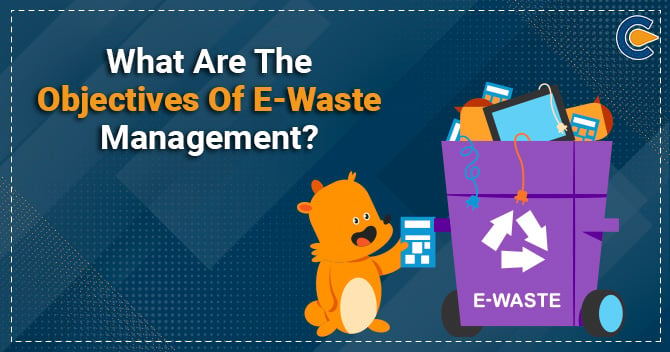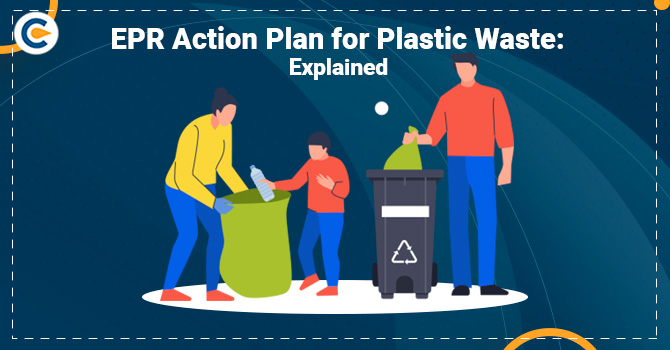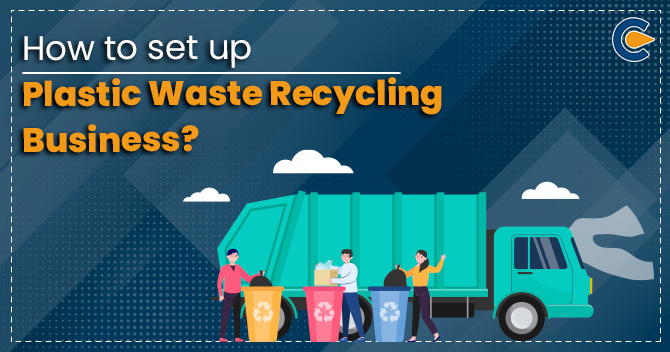E-waste or electronic waste describes discarded or rejected electronic or electrical devices. Used electronics or electrical products which are destined for reuse, resale, refurbishment, salvage recycling through material recovery, or disposal are also considered e-waste. Informal e-waste processing in developing nations can lead to adverse human health effects and pollution in the environment. The recycling of e-waste serves a lot of useful purposes. For example, include protecting human & environmental health by keeping those devices out of landfills. Or recovering the parts within the devices that still have value and providing manufacturers with recycled metal that can be used to make new products. Scroll down to check the objectives of e-waste management.
What are the rules for E-waste Management in India?
In India, the MoEFCC (Ministry of Environment, Forest and Climate Change) released the updated E-Waste (Management) Rules, which came in supersession of the E-Waste in India. International treaties like Basel Convention aim at lessening and regulating the movement of hazardous waste between nations.
Aimsand Objectives of E-waste Management
Following are the aims and objectives of E-waste Management:
- Aims of E-Waste Management:
- The aim is the disposal of unwanted electronic gadgets;
- Compared to the past days the e-waste products or items have increased abundantly nowadays;
- The major everyday use electronic products are computers, ACs, mobile phones, television, fax machines, etc.;
- A proper methodology should be followed to control the pollution caused by e-waste products.
- Objectives of E-Waste Management:
- Some of the e-waste consists of valuable covering or material inside which can be reused or recycled;
- EPR or Extended Producer Responsibility is one of the concepts introduced in e-waste management;
- One of the major objectives of e-waste management is to reduce, reuse & recycle;
- In this policy, the producers are given a vital responsibility for the disposal and treatment of the products;
- Whereas some of the electronic waste may contain hazardous chemical materials which should be disposed of carefully without causing harm to nature.
Impact of Recycling E-Waste
After discussing the objectives of e-waste management, now discuss the impact and different opportunities of e-waste management in India. Almost all electronic wastes contain some form of recyclable material, comprising glass, metals, and plastic; however, due to improper disposal methods & techniques, these materials cannot be recovered for other objectives. If electronic waste is dismantled & processed in a rough manner, its toxic constituents can wreak havoc on the human body.
Processes like dismantling components, wet chemical processing, and incineration are used to dispose of the waste and result in direct exposure & inhalation of harmful chemicals. Safety equipment like gloves and face masks are not extensively used, and workers often lack the knowledge & experience needed to carry out their jobs properly. In addition to this, manual toxic metal extraction leads to the entering of dangerous materials into the individual’s bloodstream doing so.
The health hazards range from liver & kidney damage to neurological disorders. Recycling e-waste scrap is polluting the soil, air, and water. Toxic chemicals that have no financial or economic value are simply dumped during the recycling process. Such toxic chemicals leach into an underground aquifer, thereby degrading the local groundwater quality and providing the water unfit for human consumption and agricultural purposes. When electronic waste is dumped in landfills, lead, arsenic, mercury, cadmium, and PCBs make the soil toxic and unfit for agricultural purposes. Very recent studies on recycling of e-waste have pointed towards increasing concentrations of PCBs, furans, BPA, heavy metals, etc., in the surface soil of the four metro cities of India such as New Delhi, Chennai, Mumbai, and Kolkata, where electronic waste is being processed by the informal sectors.
Opportunities of E-Waste Management in India
The MoEFCC rolled out the E-Waste (Management) Rules 2016 to decrease e-waste production and increase recycling. Under these rules, the Government of India introduced EPR, which makes producers liable to collect 30% to 70% (over 7 years) of the e-waste they produce, said the study.
The integration of the informal sector into a transparent recycling system is vital for better control of human health and environmental impacts. There have been some attempts toward integrating the present informal sector into the developing case. Organisations like GIZ have developed alternative business models in guiding the informal sector association towards authorisation. These business models promote a city-wide collection system feeding the manual dismantling facility and a strategy towards the best available technology to produce higher revenue from PCBs. By replacing the traditional wet chemical leaching procedure for the gold recovery with the export to integrated smelters & refiners, safer practices and a higher revenue per unit of e-waste collected are produced.
E-waste is a rich source of metals like silver, copper, and gold, which can be recovered & brought back into the production cycle. There is vital economic potential in the efficient recovery of valuable materials in electronic waste and can provide income-generating opportunities for both enterprises & individuals. The E-Waste Management Rules, 2016, were amended by the Government of India in March 2018 to facilitate and efficiently implement the environmentally sound management of e-waste in India. The amended Rules revise the collection targets under the provision of EPR with effect from October 01, 2017. By way of revised targets & monitoring under the CPCB or the Central Pollution Control Board[1] , effective & improved management of e-waste would be ensured.
Conclusion
After discussing the objectives of e-waste management, it is clear that e-waste management is a great challenge for governments of many developing countries such as India. This is becoming a big health issue and is exponentially increasing by the day. In order to separately collect, efficiently treat, and dispose of e-waste, as well as divert it from conventional landfills and open burning, it’s vital to integrate the informal sector with the formal sector. The capable authorities in developing & transition nations need to set up mechanisms for handling & treating e-waste in a safe & sustainable manner.
Read our Article:E-Waste Management Authorisation Process in India











